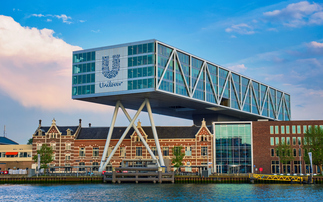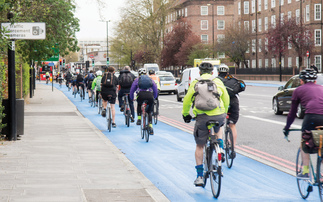In the first installment of BusinessGreen's series of interviews with green economy thought leaders, we talk to Christiana Figueres about her priorities for the next decade
Christiana Figueres is the former executive secretary of the United Nations Convention on Climate Change (UNFCCC). Assuming the role just after the failed Copenhagen summit in 2009, she re-energised international enthusiasm for climate action and was a key broker of the Paris Agreement in 2015, a landmark treaty between almost every nation on Earth to take radical action to fight climate change.
Figueres now lives in London and is the convenor of Mission 2020, a global initiative that seeks to ensure the world bends the curve on greenhouse gas emissions by 2020 in order to protect the most vulnerable from the worst impacts of climate change and usher in an era of stability and prosperity.
In 2017 she received BusinessGreen's Lifetime Achievement Award.
Where were you in 2007?
I was living and working in Washington DC, working on climate change and preparing for the Copenhagen summit of 2009.
Where do you expect to be in 2027?
I expect to be back home in my homeland of Costa Rica, living somewhere very close to the ocean.
What is the most important lesson you have learned over the last decade?
I have learned that impossible is not a fact, it is merely an attitude. If any task is important enough there can never be a barrier high enough to stop us from achieving that task. With radical collaboration and stubborn optimism everything that is important is possible.
What is your vision for the green economy in 10 years' time?
My vision is that we will have a world in which we have energy for everyone, and emissions from no one. That we will have energy that is clean, cheap, reliable and unlimited. We will have transportation that is clean, efficient and shared. We will have food security guaranteed for all. We will have the green economy being the powerhouse, lifting the poor out of misery and contributing to further development in developing countries.
What will be the biggest changes from today's world?
Well, the change towards clean energy for sure, that is already underway. The change toward electrified transportation, that is also already underway. And in addition, the way that we interact, the digitisation that we are seeing in so many different industries, will change the way we interact with each other and in fact will even change the meaning of work.
What top three sustainability challenges will be top of the agenda?
I believe that in the year 2027 we will have three sustainability challenges. Number one, water. Number two, water. Number three, water.
The fact that climate change is changing the hydrological cycle that we have had for hundreds of years means we will not have enough clean water in areas that are currently inhabited. Which means we will have to desalinate water, and we will have to do so at low cost, which is currently not the case.
That is perhaps the most difficult of the adaptation measures, but we will also have many other adaptations that we are going to have to make in order to respond to the increasing pounding of climate change through more hurricanes, more floods, more droughts. So everything that is adapting our infrastructure and our livelihood to a very changed natural environment is going to be top of our sustainability challenges.
Will the world be on course for two degrees?
Yes, I believe the world by 2027 will be on course to stay below two degrees.
If you could invest in one technology through to 2027, which would it be and why?
I would invest in any technology that uses any surface to produce energy. Currently we have thin film solar, which hasn't taken off yet, but I believe that all our surfaces will be turned in to energy generators for the building that they harbour, and I would invest in that.
What advice would you give to a sustainability professional starting their job today?
Choose one field that you are absolutely passionate about and understand that everything which is a barrier today is not a barrier tomorrow. Your job is precisely to remove those barriers to move us into the new technologies and a new livelihood of the 21st century.
Are you optimistic or pessimistic about the future?
I'm optimistic, because I do feel that we will end up with a more secure, a more fair and a more stable world. But that doesn't mean that there is not a lot of pain ahead. I think we will still hit bottom before we can come up again, and the bottom will be produced by the more frequent and more intense impacts of climate change on every single country in this world. We will get through it, but at a high cost.
This interview is part of a series, entitled Secrets of the Pioneers, which is to be published in association with Greenhouse PR to mark BusinessGreen's 10th anniversary. The full series, including interviews with Jonathon Porritt, Lord Stuart Rose, and Lord Stern, will be published on the day of the BusinessGreen Leaders' Summit next month.
You can book your place for the summit here.









